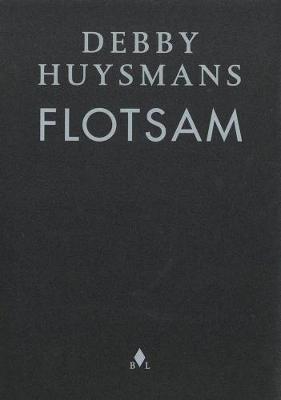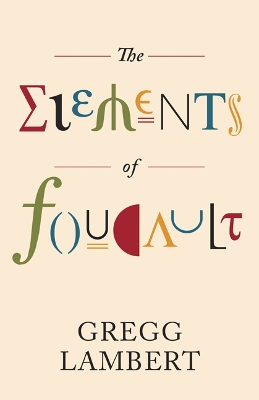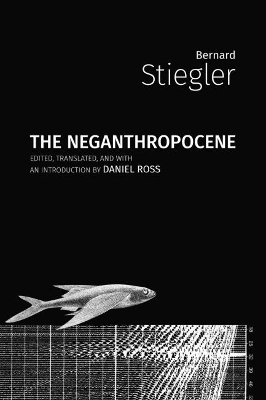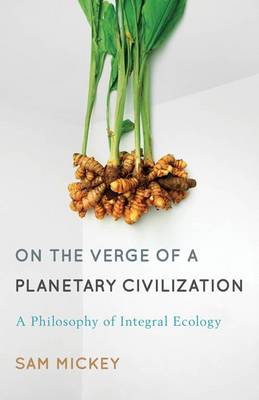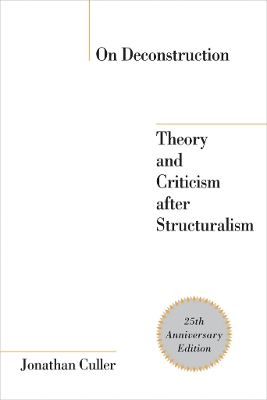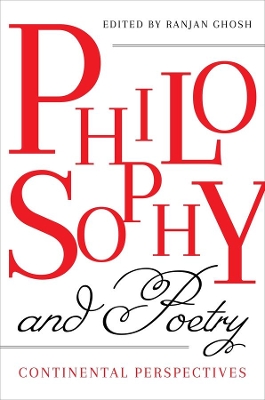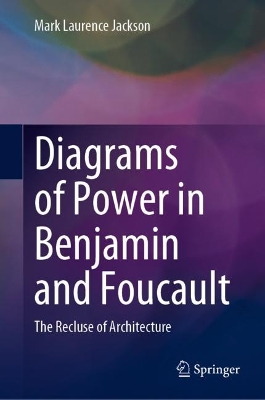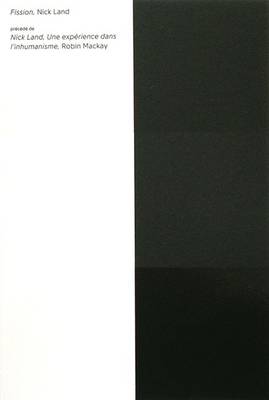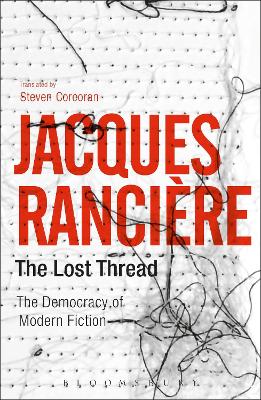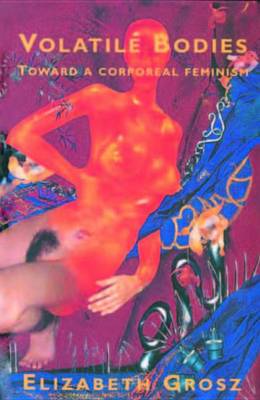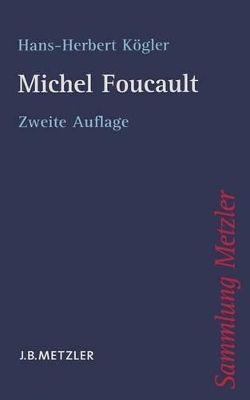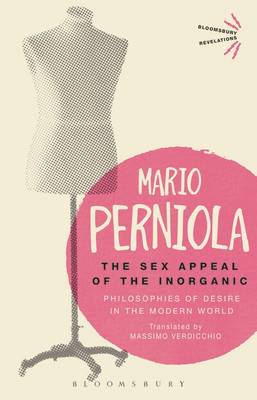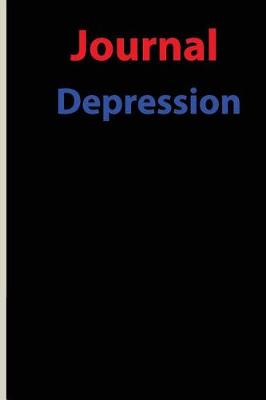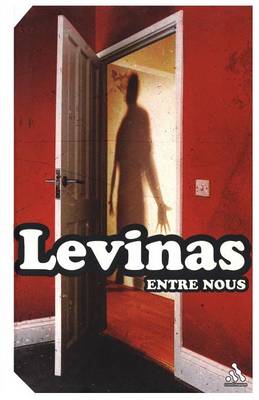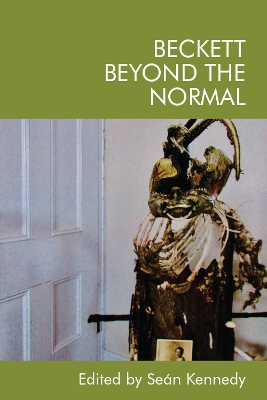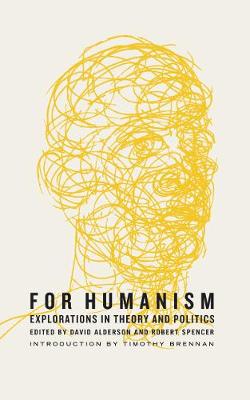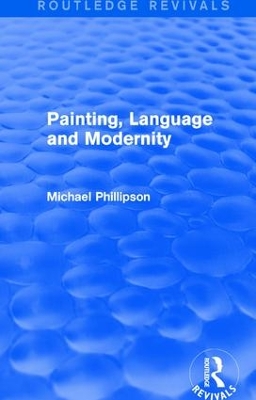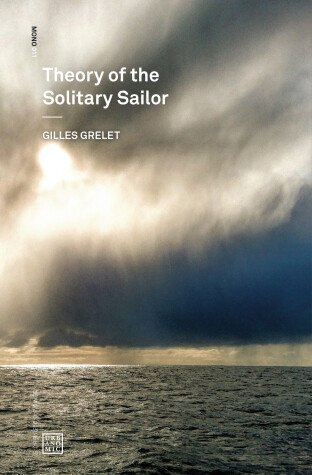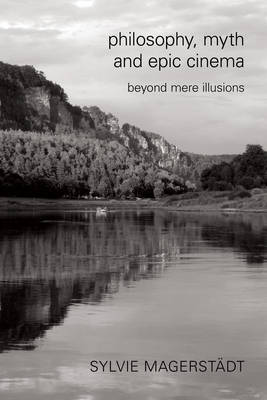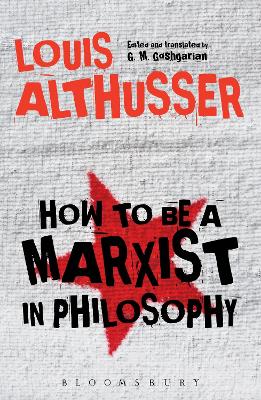The photos of Debby Huysmans expose the daily reality she encounters during her trips to former communist countries. The artist is fascinated by the current changes post communism and dedicated to document this shift to modernisation. She is not limited by narrative restrictions in her search of authentic moments. Indulging in a world we do not dwell upon the pictures have an otherworldly sense of peace. And although not depicting our reality, the images bear a strong feeling of familiarity, sho...
A new conceptual diagram of Foucault’s original vision of the biopolitical order The history around the critical reception of Michel Foucault’s published writings is troubled, according to Gregg Lambert, especially in light of the controversy surrounding his late lectures on biopolitics and neoliberal governmentality. In this book, Lambert’s unique approach distills Foucault’s thought into its most basic components in order to more fully understand its method and its own immanent rules of con...
The Neganthropocene (Critical Climate Chaos: Irreversibility, #1)
by Bernard Stiegler
In the essays and lectures here titled Neganthropocene, Stiegler opens an entirely new front moving beyond the dead-end ?banality? of the Anthropocene. Stiegler stakes out a battleplan to proceed beyond, indeed shrugging off, the fulfillment of nihilism that the era of climate chaos ushers in.
On the Verge of a Planetary Civilization presents a philosophical contribution to integral ecology-an emerging approach to the field that crosses disciplinary boundaries of the humanities and sciences. In this original book, Sam Mickey argues for the transdisciplinary significance of philosophical concepts that facilitate understandings of and responses to the boundaries involved in ecological issues. Mickey demonstrates how much the provocative French philosopher Gilles Deleuze contributes to...
With an emphasis on readers and reading, Jonathan Culler considered deconstruction in terms of the questions raised by psychoanalytic, feminist, and reader-response criticism. On Deconstruction is both an authoritative synthesis of Derrida's thought and an analysis of the often-problematic relation between his philosophical writings and the work of literary critics. Culler's book is an indispensable guide for anyone interested in understanding modern critical thought. This edition marks the twen...
Ever since Plato’s Socrates exiled the poets from the ideal city in The Republic, Western thought has insisted on a strict demarcation between philosophy and poetry. Yet might their long-standing quarrel hide deeper affinities? This book explores the distinctive ways in which twentieth-century and contemporary continental thinkers have engaged with poetry and its contribution to philosophical meaning making, challenging us to rethink how philosophy has been changed through its encounters with po...
Most studies of Patrick White's fiction are devoted to elucidating archetypal patterns, symbolic configurations, and thematic preoccupations, and generally to praising the way White's fictional elements combine to form a religio-mystical worldview. Few have questioned this critical approach to White; fewer still have questioned White's vision itself. Yet, according to the author, questioning is in orderfor Patrick White is a man divided. One part of him strives for permanence, for the ideal, in...
This book’s overarching premise is that discussion and critique in the discourses of architecture and urbanism have their primary focus on engagements with form, particularly in the sense of the question as to what planning and architecture signify with respect to the forms they take, and how their meanings or content (what is “contained”) is considered in relation to form-as-container. While significant critical work in these disciplines has been published over the past 20 years that engages p...
In The Lost Thread, Ranciere debunks the notion of Flaubert, Baudelaire, Conrad, Woolf and Keats as reactionary producers of bourgeois mythologies, and instead foregrounds the egalitarian and democratic impulses of modernist literature. Contrary to the canonical interpretation of the relation between modernism and capitalism via the commodification of everyday life, Ranciere proposes a radical rethinking of our received ideas regarding the politics of aesthetics in the modern era. Through a...
An Introductory Guide to Post-structuralism and Post-modernism
by Madan Sarup
The Sex Appeal of the Inorganic (Bloomsbury Revelations)
by Mario Perniola
We live in a world where the one-time opposition between things and humans has been transformed, where the centre of the contemporary sensibility is the encounter between philosophy and sexuality, where sex extends well beyond both the act and the body. We live in a world where to be sexy is to ignore the distinctions between animate and inanimate objects of desire, where the aesthetics of sex are being revolutionized. An organic sexuality, based on sex difference and driven by desire and pleasu...
This book explores how one can read and teach literature with Jacques Derrida through a series of articles on Vladimir Nabokov's novel Lolita, ranging from 2003 to 2017. All of them resort to the French philosopher's works as a basis for the analysis of the different chosen literary issues such as structure, genre, character or interpretation, for example.The book addresses both Nabokovian specialists and students of Nabokov's works, and could, thereby, be used as teaching guidelines not only fo...
Emmanuel Levinas (1906-1995) was a leading philosopher and Talmudic commentator. He is widely considered to be the one of the most important thinkers of the twentieth century. Levinas's work bridges several major gaps in the evolution of Continental philosophy - between modern and postmodern, phenomenology and poststructuralism, ethics and ontology. He is credited with having spurred a revitalized interest in ethics-based philosophy throughout Europe and America. "Entre Nous" is a major collecti...
Explores Beckett's artistic vision at the intersection of queer, disability and posthumanist studies The first volume to address norms and normalcy as an enduring target of Beckettian skepticism Shifts the emphasis from generic talk of 'Other Becketts' to specific accounts of the queer, the disabling, the abnormalising aspects of the mature works Absorbs and transcends the philosophy/history binary that has shaped the last twenty years Brings Beckett Studies into the twenty-first century as the...
For Humanism (Marxism and Culture)
Today, anti-humanism is a dominant, even definitive, feature of contemporary theory. Setting out to challenge this tendency, editors David Alderson and Kevin Anderson argue that the political moment demands a reappraisal of the humanist tradition. Humanism, in all its diversity and complexity, may facilitate the renewal of progressive theory through the championing of human subjectivity, agency and freedom. Across four extended essays, David Alderson, Kevin Anderson, Barbara Epstein and Rober...
Routledge Revivals: Painting, Language and Modernity (1985) (Routledge Revivals)
by Michael Phillipson
First published in 1985, this book draws together the author’s artistic with analytical practices which had been developed over many years of sociological enquiry. It interprets a ‘work of art’ as a site on which a viewer or critic is invited to share in questioning celebration of the painting itself. The author reassesses modern painting’s relation to its own origins and to tradition in light of the emergence of ‘postmodern’ practice — exploring its engagement of fundamental questions about lan...
Grelet's solitary sailor is a radical theoretical figure, herald angel of an existential rebellion against the world and against philosophy's world-thought. Over a decade ago, Gilles Grelet left the city to live permanently on the sea, in silence and solitude, with no plans to return to land, rarely leaving his boat Théorème. An act of radical refusal, a process of undoing one by one the ties that attach humans to the world, for Grelet this departure was also inseparable from an ongoing campaig...
Philosophy, Myth and Epic Cinema looks at the power of cinema in creating ideas that inspire our culture. Sylvie Magerstadt discusses the relationship between art, illusion and reality, a theme that has been part of philosophical debate for centuries. She argues that with the increase in use of digital technologies in modern cinema, this debate has entered a new phase. She discusses the notion of illusions as a system of stories and values that inspire a culture similar to other grand narratives...
In How to Be a Marxist in Philosophy one of the most famous Marxist philosophers of the 20th century shares his concept of what it means to function fruitfully as a political thinker within the discipline and environs of philosophy. This is the first English translation to Althusser's provocative and, often, controversial guide to being a true Marxist philosopher. Althusser argues that philosophy needs Marxism. It can't exist fully without it. Similarly, Marxism requires the rigour and structur...

